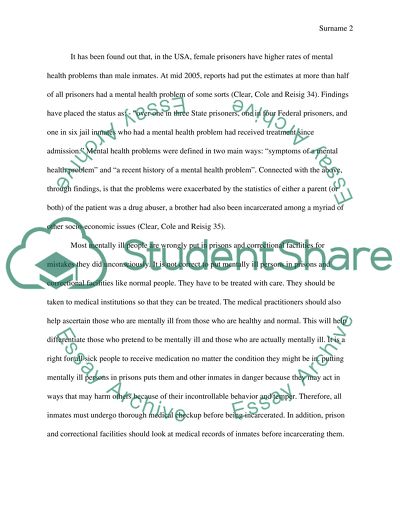Mentally challenged people entering our prisons and correctional Speech or Presentation. Retrieved from https://studentshare.org/psychology/1438085-mentally-challenged-people-entering-our-prisons-and-correctional-facilities
Mentally Challenged People Entering Our Prisons and Correctional Speech or Presentation. https://studentshare.org/psychology/1438085-mentally-challenged-people-entering-our-prisons-and-correctional-facilities.


